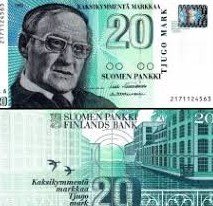In today’s interconnected world, currency fluctuations play a significant role in international finance. Whether you’re a business owner, investor, or simply someone trying to understand global economics, the concept of the Currency Adjustment Factor (CAF) is crucial. This article will explore the meaning of CAF, how it works, and why it’s important for businesses, economists, and individuals involved in international trade.

What is the Currency Adjustment Factor (CAF)?
The Currency Adjustment Factor (CAF) is a term used to describe the process of adjusting financial values based on currency exchange rate changes. It is commonly applied by businesses and financial institutions dealing with international transactions. Currency fluctuations can impact prices, costs, and profits, making adjustments necessary. When a company operates across borders, exchange rates affect the value of its products or services. The CAF helps modify these values to align with the prevailing exchange rate. This adjustment ensures that financial statements reflect accurate local currency values. By using the CAF, businesses can maintain competitiveness in global markets. It allows companies to account for economic shifts caused by currency movements. Without such adjustments, firms might miscalculate costs and profits. The CAF helps protect businesses from financial instability due to exchange rate fluctuations. Ultimately, it plays a crucial role in sustaining economic stability for internationally operating companies.
CAF is a tool that adjusts financials based on currency value changes. It helps organizations manage the challenges of foreign exchange markets.
Why is the Currency Adjustment Factor Important?
The Currency Adjustment Factor is crucial in global trade, finance, and investment. It helps reduce risks caused by currency fluctuations. Currency exchange rates can fluctuate dramatically, affecting the profitability and stability of businesses operating internationally. By using CAF, companies can account for these fluctuations and maintain pricing consistency.
Some key reasons why CAF is important include:
- Managing Currency Risk: By adjusting prices or costs based on the CAF, businesses can manage the risk of currency depreciation or appreciation.
- Ensuring Fair Pricing: It helps ensure that prices remain consistent and fair, even if exchange rates change.
- Facilitating Global Trade: It simplifies international transactions and ensures that companies are not overcharged or underpaid due to fluctuating exchange rates.
- Enhancing Financial Planning: Businesses can use CAF to make more accurate financial forecasts and set realistic goals based on potential currency fluctuations.
How Does the Currency Adjustment Factor Work?
The Currency Adjustment Factor works by recalculating prices, costs, and other financial figures in response to changes in exchange rates. For example, if the exchange rate changes from 1 USD = 0.85 EUR to 1 USD = 0.90 EUR, the CAF adjusts the price of goods or services accordingly. This ensures that transactions reflect the new exchange rate.
CAF is often calculated using a formula that considers the exchange rate change, along with other economic factors like inflation. The goal is to ensure that the business remains financially stable even when exchange rates fluctuate. Here’s a simple example:
- Before the exchange rate change, the price of a product in USD is $100.
- After the exchange rate changes, the price of the product in EUR is adjusted using the CAF.
This helps companies maintain the same profit margin despite currency fluctuations, ensuring that their products or services remain competitively priced.
The Role of the Currency Adjustment Factor in International Trade
The Currency Adjustment Factor plays a significant role in international trade by helping businesses deal with the complexities of cross-border transactions. In international trade, the fluctuation of currency exchange rates can lead to significant discrepancies in costs and profits. This is particularly true for exporters and importers who deal with multiple currencies.
By applying CAF, businesses can adjust the pricing of their goods or services based on the current exchange rates, ensuring they do not lose money due to unfavorable rate changes. It helps businesses make fair and consistent transactions regardless of the currency shifts, ensuring they remain competitive in the global market.
Currency Adjustment Factor in Practice
Let’s look at a practical scenario where the Currency Adjustment Factor is used:
Imagine a US-based company that exports electronics to the European Union. When the exchange rate changes between USD and EUR, the company would need to adjust the prices of their products in Europe using the CAF. This ensures that they are not losing money due to currency depreciation or volatility.
The company may also use CAF to adjust the price of raw materials they import from Europe. By doing so, they ensure that they are not overpaying for goods when the EUR strengthens against the USD. This method of adjusting for currency fluctuations is critical for businesses that operate in multiple countries and deal with multiple currencies.
Key Benefits of Using the Currency Adjustment Factor
There are several key benefits to using the Currency Adjustment Factor in international business:
- Predictable Pricing: By adjusting for currency fluctuations, businesses can offer predictable pricing for their products or services. This helps to avoid sudden price hikes or drops that could alienate customers or disrupt business operations.
- Minimized Losses: Currency fluctuations can lead to unexpected losses, but by using CAF, businesses can minimize the impact of these fluctuations.
- Improved Competitiveness: Companies that effectively use the Currency Adjustment Factor can remain competitive in global markets, as they can adjust their pricing to match the exchange rate fluctuations without sacrificing profitability.
- Financial Stability: CAF helps businesses maintain their financial stability in an environment where currency values can change rapidly and unpredictably.
How Businesses Can Calculate the Currency Adjustment Factor
To calculate the Currency Adjustment Factor, businesses need to follow a few simple steps:
- Identify the Exchange Rate Change: First, businesses need to identify the change in the exchange rate between the two currencies involved. For example, if the USD has depreciated against the EUR, the new exchange rate will be used for the adjustment.
- Calculate the Price Adjustment: The next step is to calculate how much the price of the product or service should be adjusted to reflect the new exchange rate. This can be done by applying a formula that considers both the old and new exchange rates.
- Factor in Other Costs: Businesses should also consider other factors, such as inflation and import/export duties, when calculating the CAF. This will ensure that the final price reflects all economic variables.
- Implement the Adjustment: Finally, businesses can implement the price adjustment across all their products or services, ensuring consistency and fairness in their pricing.
The Future of the Currency Adjustment Factor
As the global economy continues to evolve, the Currency Adjustment Factor will become even more important. With increasing global trade, financial institutions and businesses will need to continue to adapt to currency fluctuations to remain profitable and competitive.
Moreover, with the rise of digital currencies and new economic challenges, the role of CAF may expand. Businesses that operate internationally will need to consider CAF as part of their long-term financial planning to account for potential currency risks.
Conclusion
In conclusion, the Currency Adjustment Factor is a vital tool for businesses and individuals involved in international finance. By adjusting for fluctuations in currency exchange rates, CAF helps ensure fair pricing, minimizes losses, and promotes financial stability in a world where currency volatility is a constant reality. Whether you are a multinational corporation or a small business engaging in cross-border trade, understanding how to calculate and apply the Currency Adjustment Factor is essential for success.
So, next time you engage in international transactions or deal with foreign exchange, remember the Currency Adjustment Factor and how it can help you navigate the complexities of global trade and finance. The use of CAF ensures that businesses stay financially sound, remain competitive, and can predict costs and pricing more accurately in the ever-changing world of currency exchange.
Explore More: Futurefinancevision





